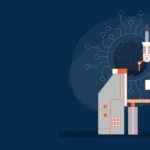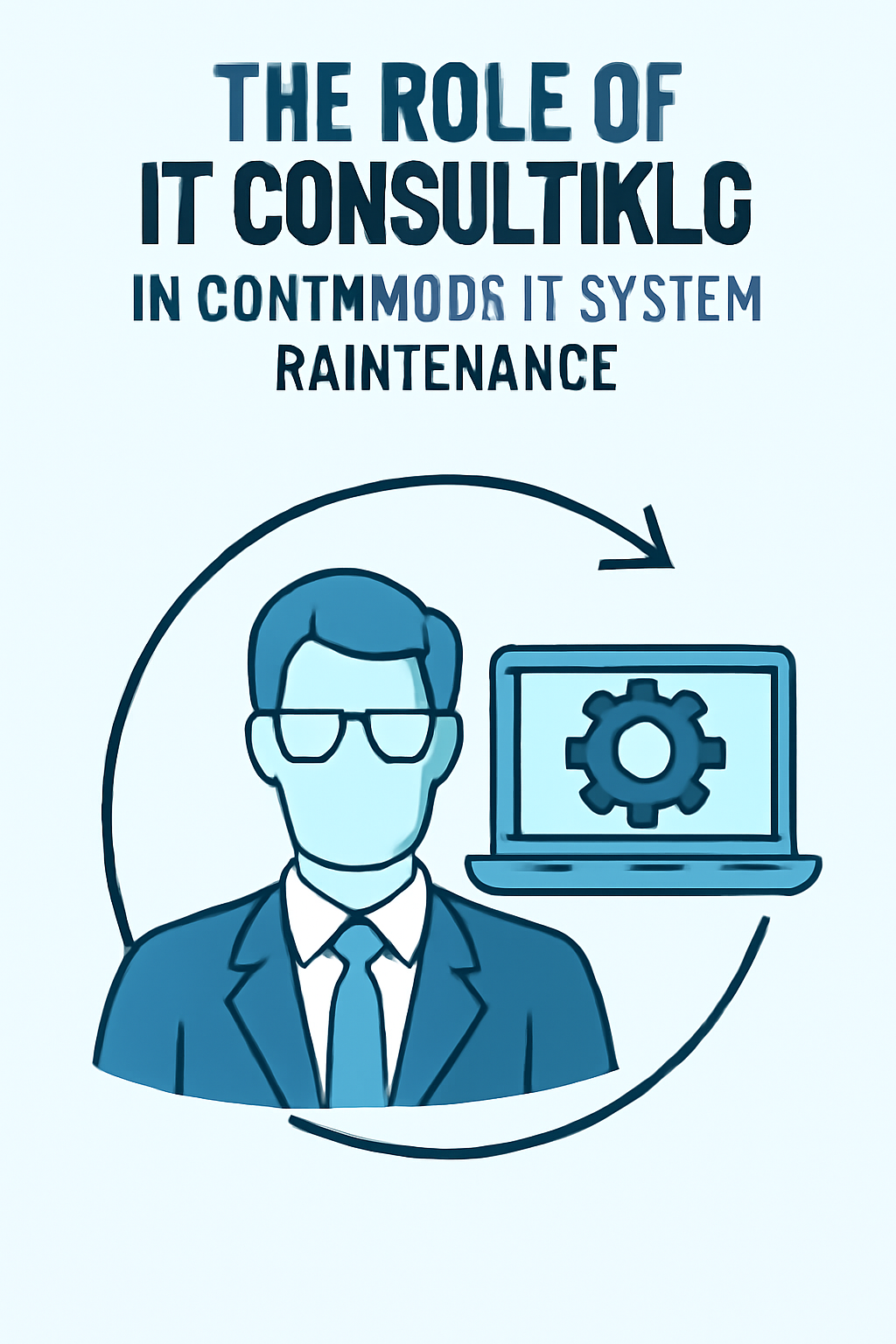Ensuring that your business technology operates smoothly goes beyond simply addressing problems as they arise; it’s crucial to prevent these issues from occurring in the first place. This is where continuous IT system maintenance comes in. From applying security patches to fine-tuning performance, this behind-the-scenes work keeps your systems healthy, reliable, and prepared to support your operations. However, ongoing maintenance can be complex and time-consuming, especially for growing businesses or organizations lacking a dedicated in-house IT team.
This is where IT consulting becomes an invaluable asset. With the right expertise and strategy, IT consultants help businesses adopt a proactive rather than reactive approach to technology management. They provide structure, efficiency, and foresight to your IT environment, allowing you to concentrate on what matters most: expanding your business. Engage with Managed IT Services Little Rock experts to stay ahead of tech issues, boost system reliability, and power your business with worry-free IT maintenance.
In this blog, we will explore IT consulting, its importance in continuous IT maintenance, and the role of consultants in strengthening long-term system performance.
What is IT Consulting?
IT consulting helps businesses with their technology needs. It involves planning, implementing, and managing technology systems and strategies. IT consultants provide expert advice on leveraging technology to meet business goals, improve efficiency, and address specific challenges. They assess current systems, recommend solutions, and assist with designing and implementing new technologies, whether in cybersecurity, cloud computing, or system integration. IT consultants ensure businesses stay competitive and adapt to evolving tech landscapes.
Importance of Continuous IT System Maintenance
Maintaining your IT systems is crucial for your business technology to operate smoothly. Regular updates and monitoring help ensure that your systems are always secure, efficient, and available when needed. Without ongoing maintenance, minor issues can quickly snowball into bigger problems that affect productivity and increase downtime. Here’s why continuous maintenance is essential:
- Prevents Downtime: Regular checks and updates reduce the risk of system failures, minimizing business disruptions.
- Boosts Security: Consistent updates protect your systems from vulnerabilities and cyber threats, ensuring sensitive data stays safe.
- Improves Performance: Regular maintenance ensures your systems run at optimal speed, enhancing efficiency.
- Saves Costs: Proactive maintenance is often cheaper than emergency repairs or system replacements.
- Ensures Compliance: Ongoing maintenance helps you stay aligned with industry regulations and avoid penalties.
In short, continuous IT system maintenance is essential for maintaining a reliable, secure, and high-performing IT environment.
Role of IT Consulting in Continuous IT System Maintenance
IT consulting helps you keep your technology running smoothly every day. It provides expertise and structure to ensure everything works well. Instead of letting problems stop your work, a consultant helps you see issues coming, make your systems better, and match your IT to what your business wants to achieve. Below, we explore the role of IT consultants in supporting continuous IT system maintenance.
Strategic IT Planning
A well-thought-out plan ensures that IT systems align with business objectives and long-term growth. IT consultants help organizations develop these strategies by assessing their current IT environment, understanding their business needs, and predicting future demands.
They lay a roadmap, including technology upgrades, potential risk factors, and scalability plans. This forward-thinking approach ensures that tech problems don’t surprise companies. It also lets them get ready for growth without stopping. By focusing on long-term goals, IT consultants help businesses plan, use resources wisely, and avoid costly mistakes.
System Monitoring and Performance Tuning
Keeping systems running smoothly requires constant monitoring. IT consultants set up tools and systems to continuously track the performance of your IT infrastructure. They look for slowdowns, system errors, and other performance issues that could cause disruptions. By catching problems early, they ensure that minor issues don’t become larger, more costly problems.
In addition to monitoring, IT consultants also optimize the performance of existing systems. They fine-tune hardware and software systems to improve speed and efficiency. This ongoing adjustment ensures systems operate at peak performance, preventing delays and downtime that could impact business operations.
Regular Security Assessments and Updates
Cybersecurity is one of the most significant concerns for modern businesses, and continuous IT system maintenance includes regular security checks. By performing routine security assessments, IT consultants help protect your systems from evolving cyber threats. They monitor for vulnerabilities, outdated software, and other potential risks, applying patches and updates as needed.
By keeping everything up to date, consultants prevent security breaches and data theft, protecting sensitive company and customer information. Regular security updates ensure businesses comply with the latest cybersecurity regulations, helping them avoid costly fines and legal issues.
Software and Hardware Lifecycle Management
IT experts assist companies with their computer programs and equipment from start to finish. They ensure that things are current and working well, tracking software versions, applying updates, and upgrading or replacing old hardware before it causes major disruptions.
Effective lifecycle management helps prevent system failures due to outdated technology. IT consultants plan so businesses don’t have surprise problems when hardware or software gets old and needs to be replaced. They assist with both upgrading existing systems and transitioning to new technologies to enhance performance and meet growing business demands.
Incident Response and Root Cause Analysis
When problems occur, IT consultants help businesses respond quickly to minimize disruptions. They don’t only repair the problem; they also investigate to find out what caused it.
This detailed analysis helps consultants address underlying issues to prevent the same problems from recurring. By focusing on immediate resolution and long-term prevention, IT consultants minimize downtime and improve the overall reliability of IT systems.
Compliance and Regulatory Alignment
All industries have rules that businesses must follow. The technology a company uses must fit those rules. IT consultants help companies comply with industry regulations such as HIPAA and PCI-DSS by ensuring that their IT systems are secure and that data is handled according to the rules.
Maintaining compliance is not just about avoiding fines; it also demonstrates to customers and stakeholders that your business takes privacy and security seriously. IT consultants keep up with the latest regulations and ensure your systems are always aligned with changing laws.
User Training & Support
IT consultants provide ongoing user training to ensure that employees can effectively use the technology available to them. They also offer support to resolve issues and troubleshoot problems as they arise.
Training isn’t limited to technical skills; consultants also teach staff about best security practices, such as recognizing phishing emails and using strong passwords. If businesses give employees the proper knowledge and tools, they can lower the chance of mistakes people make. These mistakes often cause many IT problems.
Scalability and Technology Upgrades
IT consultants are crucial in ensuring that systems can scale with the company. They help identify when technology is insufficient and recommend the right upgrades to meet growing demands. Whether expanding storage, adding new software, or upgrading hardware, IT consultants ensure the smooth transition doesn’t disrupt business operations.
By planning for future growth, consultants help businesses avoid sudden IT bottlenecks or performance issues that hamper productivity. They ensure that systems are flexible enough to support increased workloads as the company expands.
In Conclusion
Maintaining your IT systems effectively requires more than occasional repairs; it demands consistent care and strategic support. This is where IT consulting shows its actual value. By providing proactive planning, ongoing monitoring, robust security practices, and user support, consultants help businesses anticipate potential issues, minimize downtime, and confidently scale for growth. With the right IT consulting partner, continuous system maintenance becomes integral to your business success. For more information, contact the IT Support Little Rock.










